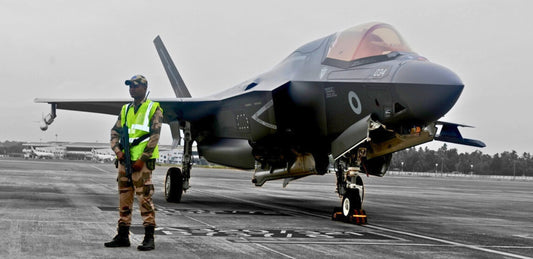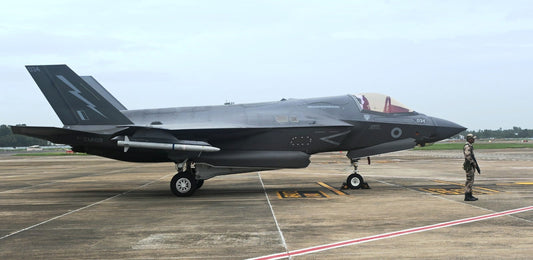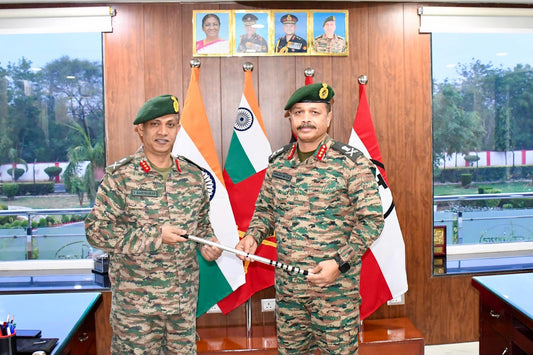What are the Power and Duties of an Indian Army Major?

In the intricate tapestry of the Indian Army, the rank of Major stands out as one of the keystones of military leadership and operational effectiveness. The position carries with it not only authority but also a myriad of responsibilities that are pivotal to the functioning of a company-sized unit, typically comprising 120 to 150 soldiers. Majors serve as the vital link between the higher echelons of command and the troops who execute military operations on the ground. Their powers and duties are extensive, encompassing everything from operational readiness to troop welfare, making them integral to the Indian Army's overarching mission of national defence.
Historical Context
The rank of Major has a storied history that precedes even the establishment of the Indian Army. Historically, the role developed within various armies around the world as nations recognized the need for effective mid-level command. In the Indian context, the British colonial army formalized ranks and positions, positioning the Major as a crucial element of command structures. Post-independence in 1947, the Indian Army inherited this legacy while adapting to contemporary operational needs and the changing dynamics of warfare. Today, the responsibilities of a Major have evolved to meet the challenges of modern combat, counterinsurgency, and peacekeeping missions, emphasizing leadership, strategic planning, and troop morale.
Command and Leadership
At the heart of a Major's role in the Indian Army is command and leadership. Serving as a company commander, a Major exercises direct authority over their unit, which encompasses a unit of roughly 120 to 150 soldiers. This leadership role demands not only military acumen but also exceptional interpersonal and motivational skills.
Responsibilities as a Commander
- Strategic Decision-Making: Majors must analyze battlefield situations and make critical decisions that affect mission outcomes. This involves evaluating threats, resources, and potential courses of action.
- Discipline and Training: Ensuring that soldiers adhere to discipline is crucial. Majors conduct regular training sessions to enhance tactical skills and maintain combat readiness, reinforcing the importance of continuous improvement within their units.
- Crisis Management: In high-pressure scenarios, a Major's ability to maintain composure and lead decisively can be the difference between mission success and failure.
Operational Readiness and Effectiveness
The responsibility for operational readiness falls squarely on the shoulders of a Major. This includes preparing troops for various military operations, encompassing both peacetime activities and wartime engagement.
Components of Operational Readiness
- Training Programs: Majors are tasked with designing and implementing rigorous training programs tailored to the specific operational requirements of their units.
- Maintenance of Equipment: Responsible for the upkeep and functionality of military equipment, Majors ensure their troops have the necessary tools for combat.
Adequate operational readiness translates into effective military operations. The Indian Army's success in various conflicts, exercises, and missions hinges on the meticulous planning and execution executed by Majors and their leadership teams.
Planning and Execution of Military Operations
Majors play an essential role in the planning and execution of military operations. Collaborating closely with senior officers, they contribute to the development of comprehensive strategies that encompass both tactical and logistical considerations.
Planning Processes
- Resource Management: Majors coordinate with logistics teams to ensure the adequate supply of resources and support for their troops inside and outside the operational theatre.
- Tactical Flexibility: They must also adapt tactical decisions based on real-time intelligence that influences manoeuvres and engagements.
Through effective planning, Majors can significantly enhance the chances of operational success, thereby bolstering the larger mission objectives of the Indian Army.
Troop Welfare and Morale
A Major's duties extend beyond the battlefield. One of the paramount responsibilities associated with this rank is the welfare and morale of soldiers. The effectiveness of any military organization is often tied to the well-being of its personnel.
Key Aspects of Troop Welfare
- Mental Health and Support: Majors are sensitive to the mental health of their troops, often establishing systems for support and counseling. High morale leads to better performance in challenging situations.
- Addressing Concerns: Open lines of communication and a proactive approach to resolving grievances can foster loyalty and mutual respect within the unit.
Examples of Troop Welfare Initiatives
- Regular Feedback Sessions: Conducting town hall-style meetings to discuss issues and gather feedback helps in identifying and resolving troop concerns promptly.
- Celebrating Achievements: Recognizing individual and unit accomplishments boosts morale and strengthens the bond among team members.
Administrative Duties
Beyond operational leadership, Majors carry a host of administrative responsibilities crucial to the functioning of their units. These duties are often vital but may go unnoticed amid the hustle of military life.
Administrative Responsibilities
- Logistics Management: Majors oversee the logistical aspects of their operations, ensuring that all necessary supplies and materials reach their troops.
- Reporting and Communication: They maintain effective lines of communication with higher command levels, submitting reports that detail performance metrics, challenges, and achievements.
This critical administrative oversight ensures the seamless integration of operational and logistical elements within the team.
Mentorship and Role Modeling
As experienced leaders, Majors serve as mentors and role models for junior officers and soldiers. Their behaviour, ethics, and leadership style profoundly influence the culture within their unit and, by extension, the broader Army.
Mentoring Practices
- Skill Development: Majors take an active role in the professional development of their subordinates by providing training opportunities and feedback on their performance.
- Fostering Leadership Qualities: They are responsible for identifying and nurturing future leaders, ensuring a steady pipeline of capable officers in the Army.
Decision-Making and Leadership Qualities
The ability to make sound decisions is a hallmark of effective military leadership. A Major's decisions can significantly impact the lives of soldiers and the success of military operations.
Essential Leadership Qualities
- Adaptability: In the face of unpredictable circumstances, Majors must maintain flexibility in their plans and approach.
- Critical Thinking: They are compelled to analyze situations comprehensively and devise strategies that consider both immediate needs and long-term objectives.
A Major's leadership approach is a blend of authoritative command and empathetic mentorship, designing a balanced leadership philosophy that resonates well within the ranks.
Overall Responsibilities
To summarize, the responsibilities of a Major in the Indian Army are multi-faceted. Commanding a company involves overseeing operational readiness, troop welfare, administration, and effective leadership. Each area of responsibility feeds into the larger goal of mission success, directly affecting the effectiveness of military operations. The blend of tactical acumen, administrative oversight, and a genuine concern for soldier welfare is what distinguishes an outstanding Major.
Statistical Data and Research Insights
In terms of effectiveness, data from military assessments suggests that units led by seasoned Majors tend to exhibit higher performance metrics in combat readiness. Reports indicate that a well-trained and motivated company can enhance operational effectiveness by nearly 30% when compared to poorly managed units.
Challenges and Solutions
Despite their pivotal role, Majors face significant challenges, including stress management, bureaucratic hurdles, and resource constraints.
Key Challenges
- High Pressure and Stress: The demands of leadership, especially in combat zones, can lead to burnout.
- Bureaucratic Delays: Navigating bureaucratic processes can impede timely decision-making and resource allocation.
Proposed Solutions
- Mental Health Support: Developing comprehensive mental health programs within the unit to help Majors cope with stress.
- Streamlining Processes: Advocating for the simplification of administrative procedures to facilitate better decision-making.
Future Trends and Predictions
As the dynamics of modern warfare continue to evolve, the responsibilities of Majors in the Indian Army may further adapt. The increasing importance of technology in combat operations may require Majors to embrace new skills in cyber warfare, liaison with technical teams, and enhanced communication strategies.
Conclusion
In conclusion, the rank of Major in the Indian Army embodies one of the most significant roles in military leadership. With substantial powers and duties extending from command and operational readiness to troop welfare, Majors influence both the immediate success of their units and the broader strategic objectives of the Indian Army. As the battlefield dynamics transform with technological advancements and evolving military strategies, the role of a Major will likely expand and require adaptability to remain effective. In the complex landscape of national defence, understanding the responsibilities of such a crucial leadership position underscores the importance of investing in the development and support of these leaders, ensuring they are equipped to meet the challenges of both today and tomorrow.















![Let's Crack SSB Interview Book [Paperback]](http://shop.ssbcrack.com/cdn/shop/files/ssb-books.webp?v=1736351621&width=533)




5 comments
Major ki Lund power aur jhaat baar ke responsibility hoti hai
Mai phle police banna chahta hu eske bad daroga phir dm kya aisa soch sahi h plz bataye
He is a famous officer, he has earned shaurya chakra also.
I want to crack upsc cds and ssb
I want to crack upsc cds and ssb